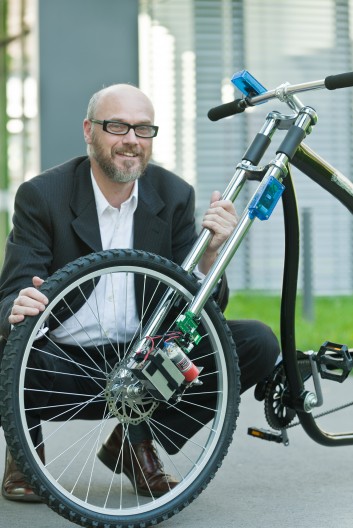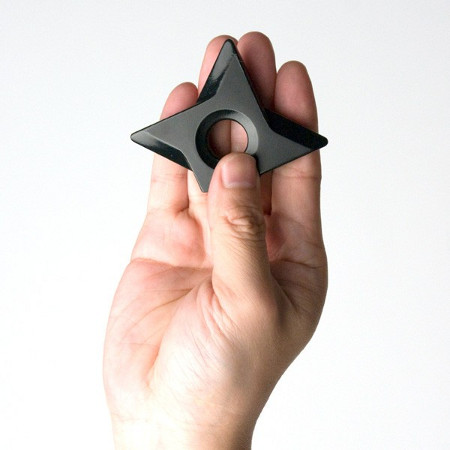
By David Ponce
We’ve never come to see the snaking wires on a bicycle as that much of a hassle, yet there is research underway to get rid of them altogether. And unlike existing wireless gear-shifters, reliability is somewhat of an issue when it comes to braking. The worst that happens if your bike doesn’t shift is that it doesn’t shift. Miss out of the brakes and it could be a fast-track to the bottom of a ravine. So researchers at Germany’s Saarland University have developed a prototype wireless braking system with 99.999999999997% reliability. The number of nines on that figure is important: it means it would fail three times out of a trillion braking attempts, which isn’t so bad. There’s no handle either, everything is accomplished through pressure sensors in the handlebar that apply braking force proportional to your grip (past a predetermined threshold). A receiver box interprets the signals and stops the bike “within 250 milliseconds. At that speed, a cyclist traveling at 30 km/h (18.6 mph) would have to react at least two meters (6.6 feet) before the point at which they needed to stop.” It’s not ideal but they’re working on improving this figure.
There is no clear path to marketplace at the moment, although lessons learned in this project could help engineers develop wireless systems with very high degrees of reliability.
[ Press Release ] VIA [ Gizmag ]





post edit